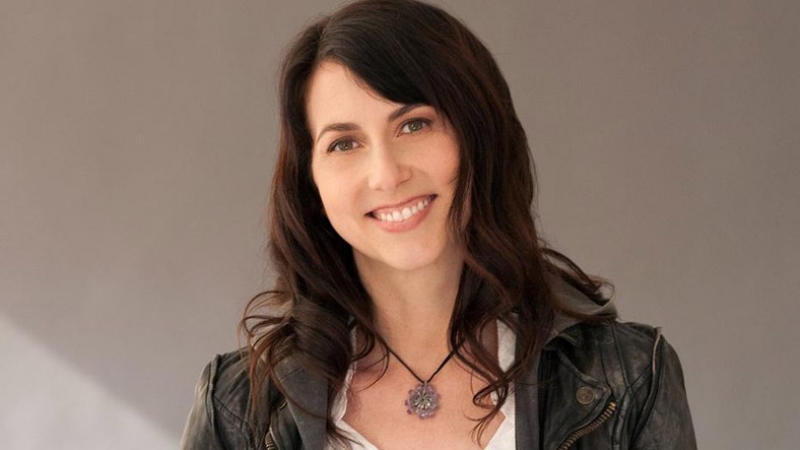Jeff Bezos ex-wife donates $ 6 billion to food banks, immigrants, and universities.
Food banks, immigrant aid associations and struggling universities ran into a surprise benefactor last year: MacKenzie Scott, the ex-wife of Amazon CEO Jeff Bezos.
Scott donated a whopping $ 6 billion in 2020, without demanding a match, contrary to the usual practices of donors to charitable causes in the United States.
MacKenzie Scott has rocked the philanthropic world, not only because of her gigantic contributions, but also because, by allowing organizations to determine how to use them, she frees them from the bureaucracy.
Laura MacDonald, president of the Giving USA Foundation, a nonprofit that conducts research on philanthropic giving, says the ex-wife of the second-richest man on the planet leads a movement for “trust-based philanthropy.”
“This can encourage other donors … to take more risks,” she says.
In December, Scott donated to 384 organizations, ranging from a university tech institute on the Blackfeet Indian Reservation in Montana (northwest) to a food bank in Arkansas (center) to the Immigrant Families Fund immigrant aid association.
“This pandemic has destroyed the lives of Americans who were already fighting,” wrote MacKenzie Scott. “Economic losses and the medical cost have been most severe for women, people of color and those living in poverty. Meanwhile, the wealth of billionaires has dramatically increased. “
“I hope that the amount of money you are putting on the table and your intention to continue to do so will give everyone who is sitting on their fortunes a kick in the butt as we face incredible challenges and needs,” said Phil Buchanan, Center President. for Effective Philanthropy, which provides information to charitable foundations.
Bezos’s ex-partner, who since his divorce has a stake in the e-commerce giant Amazon valued at $ 58 billion, has pledged to cede much of his assets to the fight against social inequalities.
In July, she announced grants for $ 1.7 billion and in December for another $ 4.2 billion.
Scott hired a team of consultants to help her identify organizations that support those suffering the economic impact of the pandemic and, in particular, fight hunger, poverty and racial inequalities.
These organizations “have dedicated their existence to helping others, working and volunteering, face to face and day to day, at the table or by the bed of real people, in prisons, on the streets, in classrooms or in hospital wards, ”this 50-year-old philanthropist wrote in Medium.
Her approach contrasts with that of her ex-husband Jeff Bezos. While the Amazon founder donated 10 billion dollars to the fight against climate change, the largest charitable contribution of 2020, his participation has been slower and proportionally more limited than those of his ex-wife.
The former couple could give a big boost to philanthropy in the United States, which in 2019 mobilized some 450,000 million dollars.
For Benjamin Soskis, a researcher specializing in philanthropy at the Urban Institute, Scott’s initiatives are remarkable not only for their level, but also for the speed with which funds are released. In addition, she “insisted on giving the money and staying away,” he stressed.
Typically, “philanthropists see themselves as part of the process and set up multiple checks and evaluations that can be very onerous.” Scott could be criticized for the “opacity” in the selection of the beneficiaries of her subsidies, says the expert.
But her recklessness could set an important precedent. “No great philanthropist can ignore her example.”

